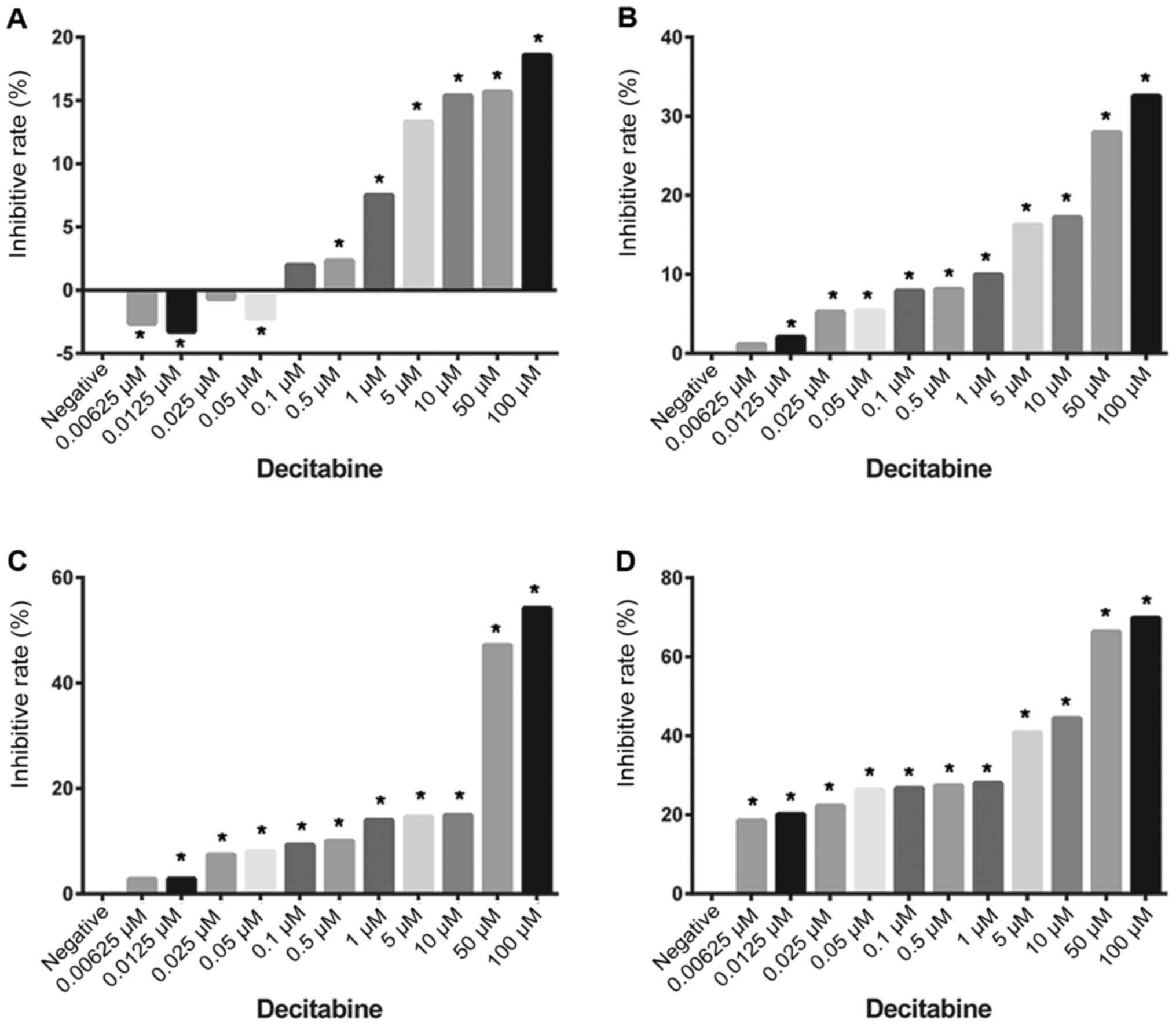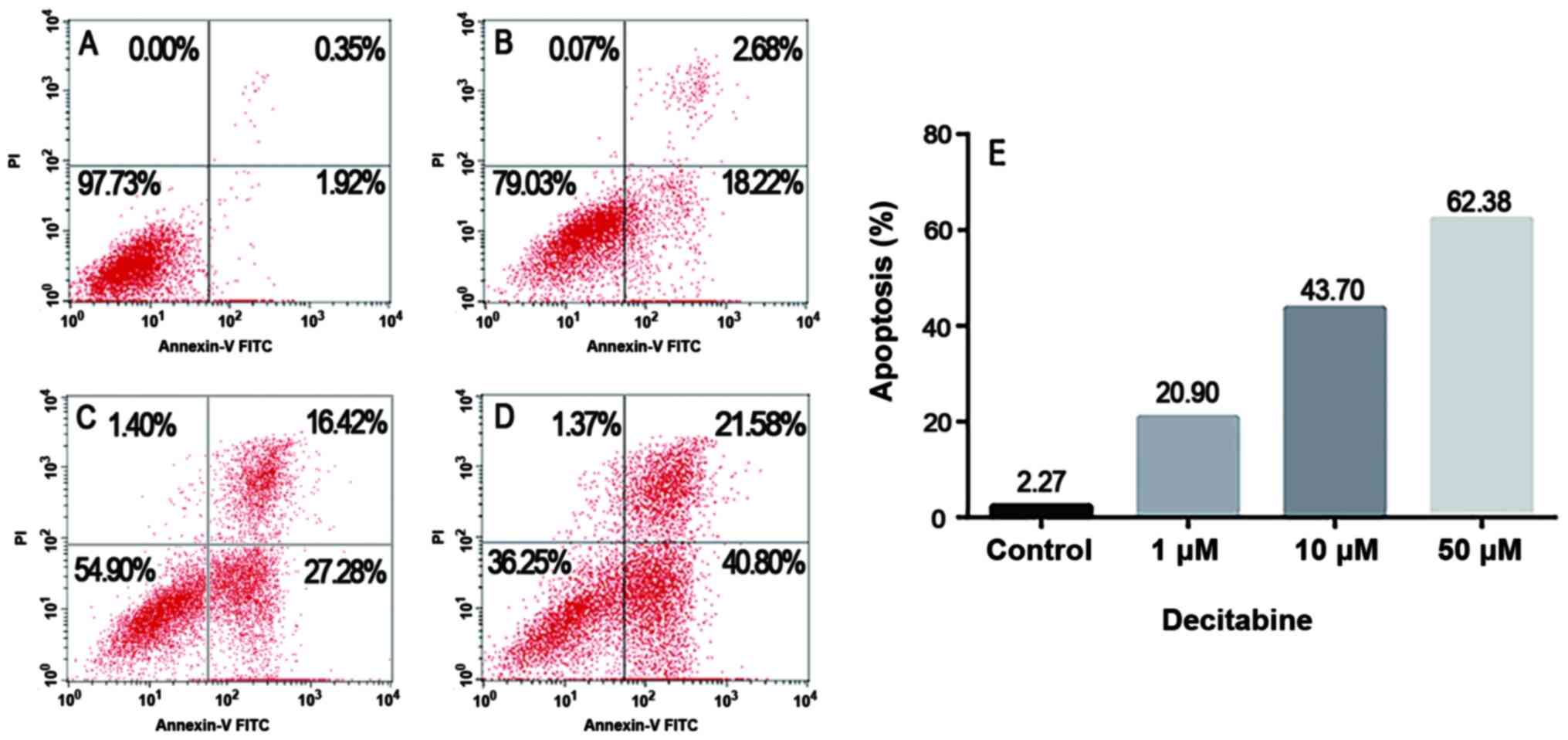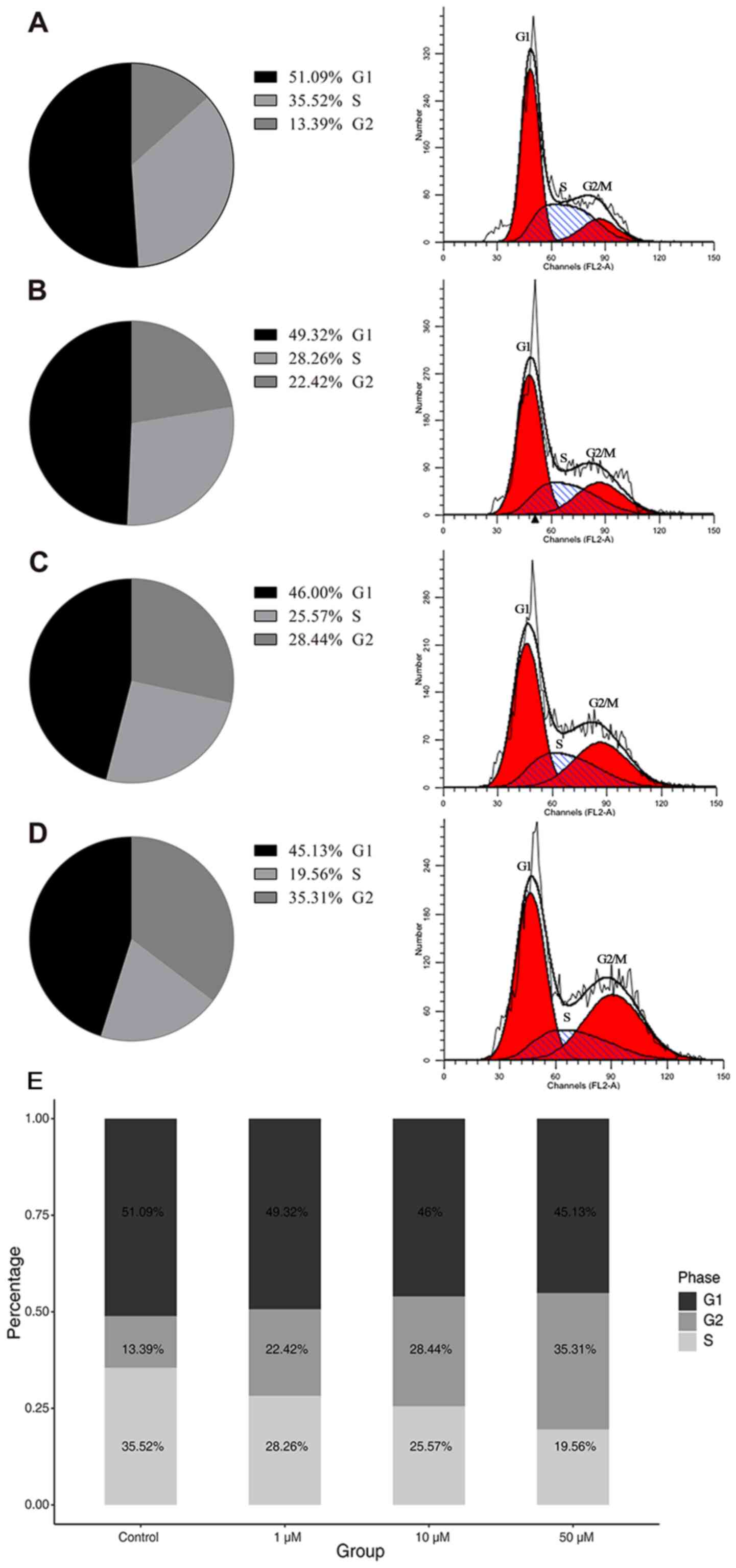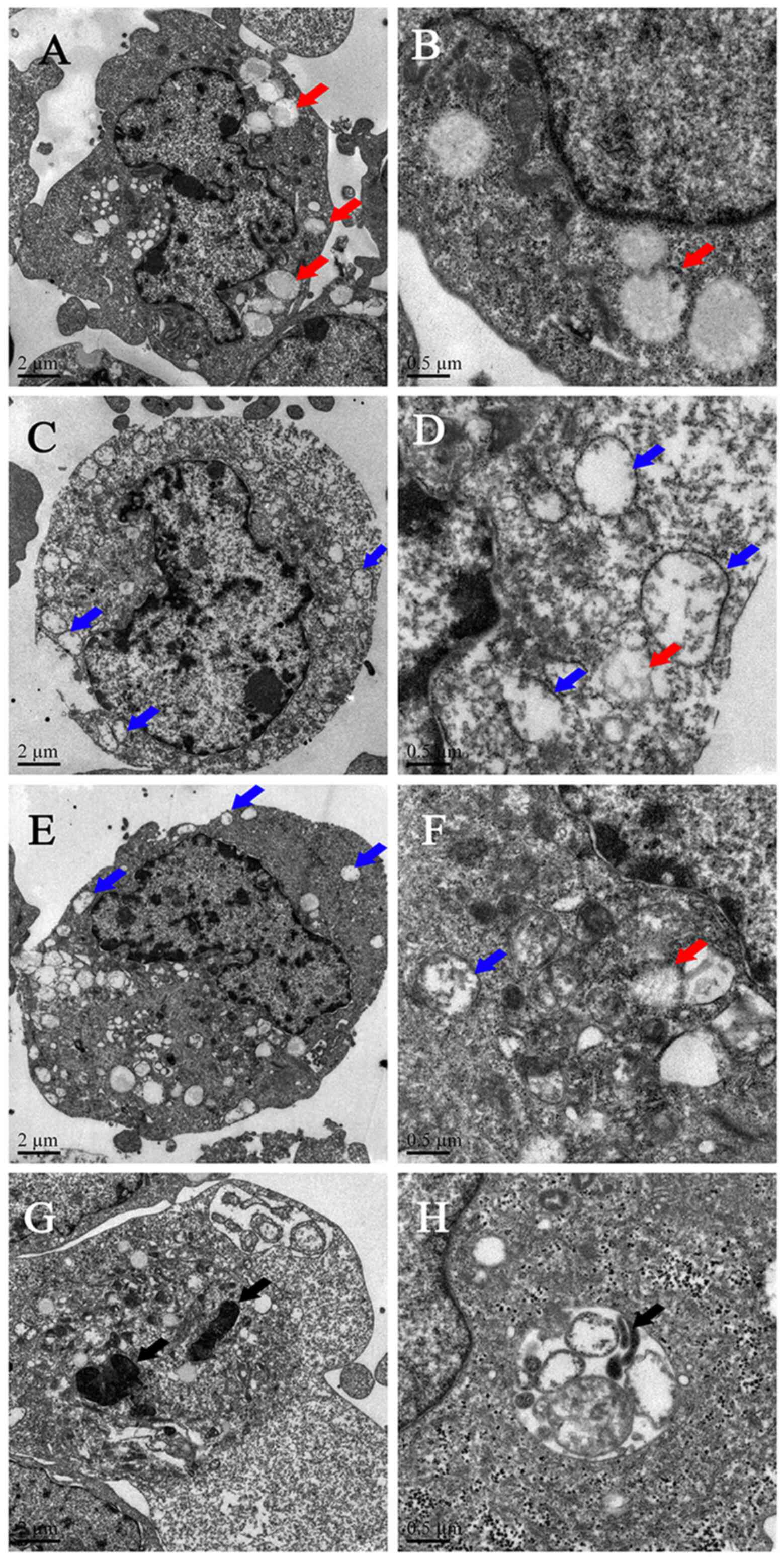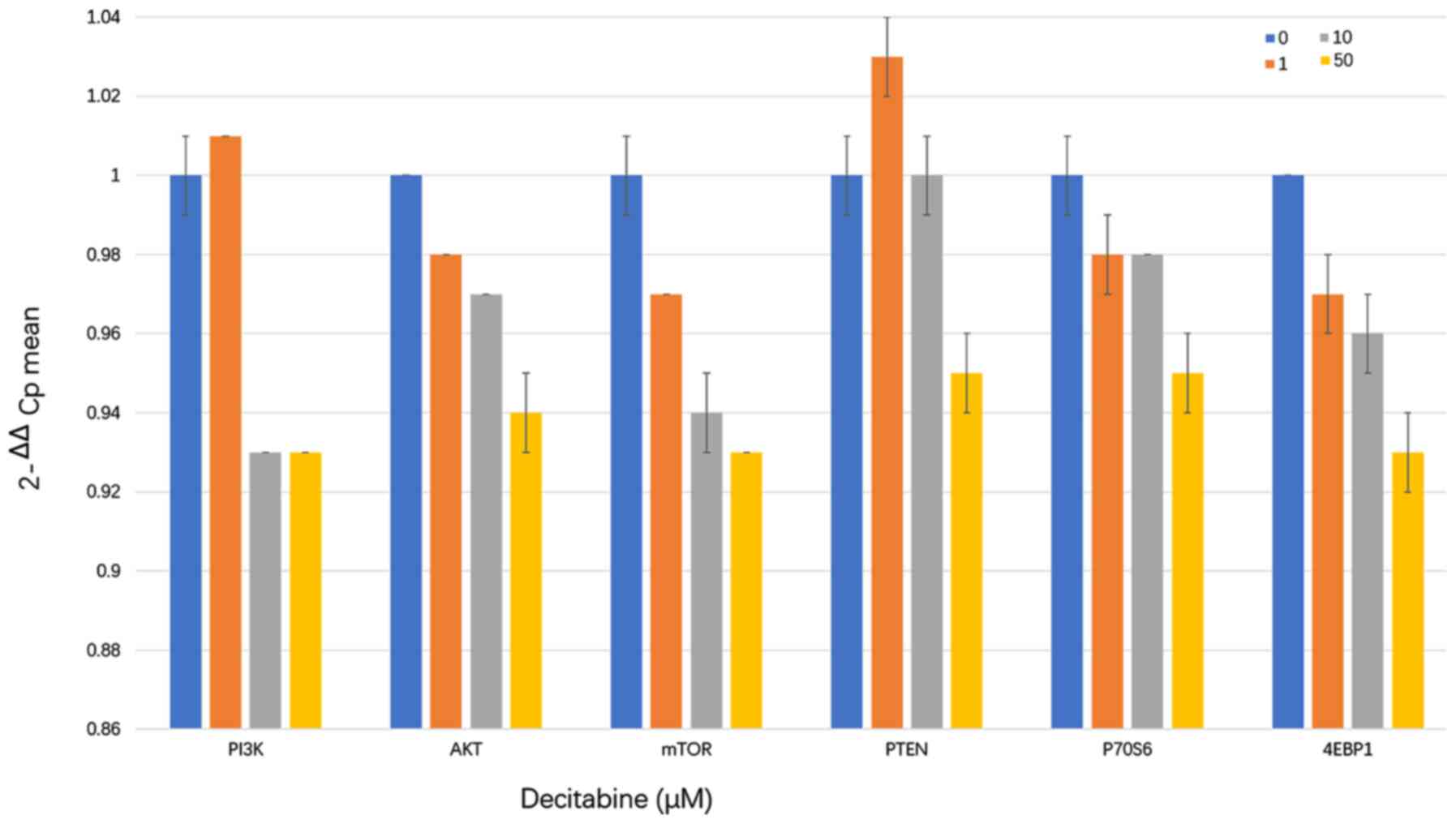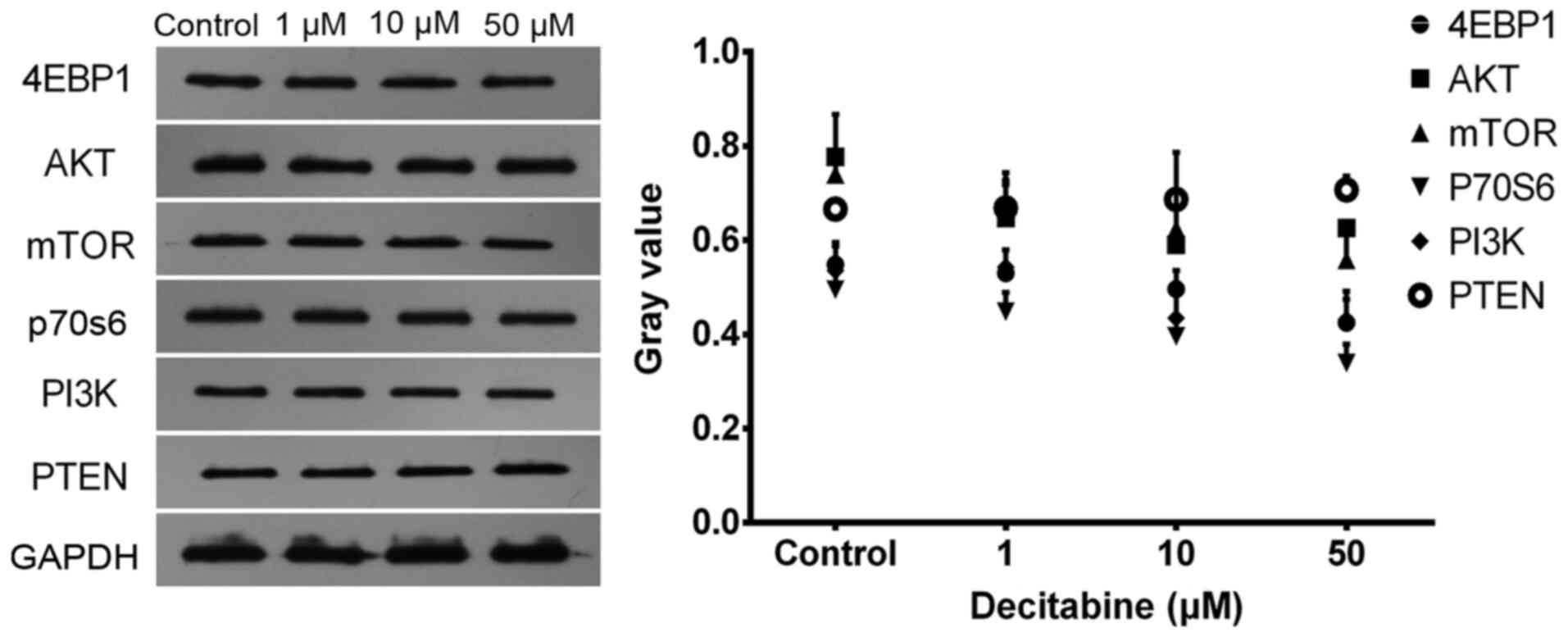|
1
|
Akkapeddi P, Fragoso R, Hixon JA, Ramalho
AS, Oliveira ML, Carvalho T, Gloger A, Matasci M, Corzana F, Durum
SK, et al: A fully human anti-IL-7Rα antibody promotes antitumor
activity against T-cell acute lymphoblastic leukemia. Leukemia.
33:2155–2168. 2019. View Article : Google Scholar : PubMed/NCBI
|
|
2
|
Teachey DT and Pui CH: Comparative
features and outcomes between paediatric T-cell and B-cell acute
lymphoblastic leukaemia. Lancet Oncol. 20:e142–e154. 2019.
View Article : Google Scholar : PubMed/NCBI
|
|
3
|
Hales EC, Taub JW and Matherly LH: New
insights into Notch1 regulation of the PI3K-AKT-mTOR1 signaling
axis: Targeted therapy of γ-secretase inhibitor resistant T-cell
acute lymphoblastic leukemia. Cell Signal. 26:149–161. 2014.
View Article : Google Scholar : PubMed/NCBI
|
|
4
|
Karrman K and Johansson B: Pediatric
T-cell acute lymphoblastic leukemia. Genes Chromosomes Cancer.
56:89–116. 2017. View Article : Google Scholar : PubMed/NCBI
|
|
5
|
Rahmat LT, Nguyen A, Abdulhaq H, Prakash
S, Logan AC and Mannis GN: Venetoclax in combination with
decitabine for relapsed T-cell acute lymphoblastic leukemia after
allogeneic hematopoietic cell transplant. Case Rep Hematol.
2018:60926462018.PubMed/NCBI
|
|
6
|
Fu JH, Yang S, Nan CJ, Zhou CC, Lu DQ, Li
S and Mu HQ: MiR-182 affects renal cancer cell proliferation,
apoptosis, and invasion by regulating PI3K/AKT/mTOR signaling
pathway. Eur Rev Med Pharmacol Sci. 22:351–357. 2018.PubMed/NCBI
|
|
7
|
Wang X, Han L, Zhang J and Xia Q:
Down-regulated NRSN2 promotes cell proliferation and survival
through PI3K/Akt/mTOR pathway in hepatocellular carcinoma. Dig Dis
Sci. 60:3011–3018. 2015. View Article : Google Scholar : PubMed/NCBI
|
|
8
|
Silva A, Girio A, Cebola I, Santos CI,
Antunes F and Barata JT: Intracellular reactive oxygen species are
essential for PI3K/Akt/mTOR-dependent IL-7-mediated viability of
T-cell acute lymphoblastic leukemia cells. Leukemia. 25:960–967.
2011. View Article : Google Scholar : PubMed/NCBI
|
|
9
|
Carnero A and Paramio JM: The
PTEN/PI3K/AKT pathway in vivo, cancer mouse models. Front Oncol.
4:2522014. View Article : Google Scholar : PubMed/NCBI
|
|
10
|
Palomero T, Sulis ML, Cortina M, Real PJ,
Barnes K, Ciofani M, Caparros E, Buteau J, Brown K, Perkins SL, et
al: Mutational loss of PTEN induces resistance to NOTCH1 inhibition
in T-cell leukemia. Nat Med. 13:1203–1210. 2007. View Article : Google Scholar : PubMed/NCBI
|
|
11
|
Medyouf H, Gao X, Armstrong F, Gusscott S,
Liu Q, Gedman AL, Matherly LH, Schultz KR, Pflumio F, You MJ and
Weng AP: Acute T-cell leukemias remain dependent on Notch signaling
despite PTEN and INK4A/ARF loss. Blood. 115:1175–1184. 2010.
View Article : Google Scholar : PubMed/NCBI
|
|
12
|
Ultimo S, Martelli AM, Zauli G, Vitale M,
Calin GA and Neri LM: Roles and clinical implications of microRNAs
in acute lymphoblastic leukemia. J Cell Physiol. 233:5642–5654.
2018. View Article : Google Scholar : PubMed/NCBI
|
|
13
|
Pan Y, Liu G, Zhou F, Su B and Li Y: DNA
methylation profiles in cancer diagnosis and therapeutics. Clin Exp
Med. 18:1–14. 2018. View Article : Google Scholar : PubMed/NCBI
|
|
14
|
Yang Y, Zhao L, Huang B, Hou G, Zhou B,
Qian J, Yuan S, Xiao H, Li M and Zhou W: A new approach to
evaluating aberrant DNA methylation profiles in hepatocellular
carcinoma as potential biomarkers. Sci Rep. 7:465332017. View Article : Google Scholar : PubMed/NCBI
|
|
15
|
Momparler RL, Côté S, Momparler LF and
Idaghdour Y: Inhibition of DNA and histone methylation by
5-Aza-2′-deoxycytidine (Decitabine) and 3-deazaneplanocin-A on
antineoplastic action and gene expression in myeloid leukemic
cells. Front Oncol. 7:192017. View Article : Google Scholar : PubMed/NCBI
|
|
16
|
Almasri J, Alkhateeb HB, Firwana B, Sonbol
MB, Damlaj M, Wang Z, Murad MH and Al-Kali A: A systematic review
and network meta-analysis comparing azacitidine and decitabine for
the treatment of myelodysplastic syndrome. Syst Rev. 7:1442018.
View Article : Google Scholar : PubMed/NCBI
|
|
17
|
He PF, Zhou JD, Yao DM, Ma JC, Wen XM,
Zhang ZH, Lian XY, Xu ZJ, Qian J and Lin J: Efficacy and safety of
decitabine in treatment of elderly patients with acute myeloid
leukemia: A systematic review and meta-analysis. Oncotarget.
8:41498–41507. 2017. View Article : Google Scholar : PubMed/NCBI
|
|
18
|
Xie M, Jiang Q and Xie Y: Comparison
between decitabine and azacitidine for the treatment of
myelodysplastic syndrome: A meta-analysis with 1,392 participants.
Clin Lymphoma Myeloma Leuk. 15:22–28. 2015. View Article : Google Scholar : PubMed/NCBI
|
|
19
|
Uitdehaag JC, de Roos JA, van Doornmalen
AM, Prinsen MB, Spijkers-Hagelstein JA, de Vetter JR, de Man J,
Buijsman RC and Zaman GJ: Selective targeting of CTNBB1-, KRAS- or
MYC-driven cell growth by combinations of existing drugs. PLoS One.
10:e01250212015. View Article : Google Scholar : PubMed/NCBI
|
|
20
|
Livak KJ and Schmittgen TD: Analysis of
relative gene expression data using real-time quantitative PCR and
the 2(-Delta Delta C(T)) method. Methods. 25:402–408. 2001.
View Article : Google Scholar : PubMed/NCBI
|
|
21
|
Shi P, Zhang L, Chen K, Jiang Z, Deng M,
Zha J, Guo X, Li P and Xu B: Low-dose decitabine enhances
chidamide-induced apoptosis in adult acute lymphoblast leukemia,
especially for p16-deleted patients through DNA damage.
Pharmacogenomics. 18:1259–1270. 2017. View Article : Google Scholar : PubMed/NCBI
|
|
22
|
Simioni C, Martelli AM, Zauli G, Melloni E
and Neri LM: Targeting mTOR in acute lymphoblastic leukemia. Cells.
8:1902019. View Article : Google Scholar
|
|
23
|
Bertacchini J, Heidari N, Mediani L,
Capitani S, Shahjahani M, Ahmadzadeh A and Saki N: Targeting
PI3K/AKT/mTOR network for treatment of leukemia. Cell Mol Life Sci.
72:2337–2347. 2015. View Article : Google Scholar : PubMed/NCBI
|
|
24
|
Fransecky L, Mochmann LH and Baldus CD:
Outlook on PI3K/AKT/mTOR inhibition in acute leukemia. Mol Cell
Ther. 3:22015. View Article : Google Scholar : PubMed/NCBI
|
|
25
|
Wang X, Huang H and Young KH: The PTEN
tumor suppressor gene and its role in lymphoma pathogenesis. Aging
(Albany NY). 7:1032–1049. 2015. View Article : Google Scholar : PubMed/NCBI
|
|
26
|
Pulido R: PTEN inhibition in human disease
therapy. Molecules. 23:2852018. View Article : Google Scholar
|
|
27
|
Onda K, Suzuki R, Tanaka S, Oga H, Oka K
and Hirano T: Decitabine, a DNA methyltransferase inhibitor,
reduces P-glycoprotein mRNA and protein expressions and increases
drug sensitivity in drug-resistant MOLT4 and Jurkat cell lines.
Anticancer Res. 32:4439–4444. 2012.PubMed/NCBI
|
|
28
|
Atallah E, Kantarjian H and Garcia-Manero
G: The role of decitabine in the treatment of myelodysplastic
syndromes. Expert Opin Pharmacother. 8:65–73. 2007. View Article : Google Scholar : PubMed/NCBI
|
|
29
|
Bohl SR, Bullinger L and Rücker FG:
Epigenetic therapy: Azacytidine and decitabine in acute myeloid
leukemia. Expert Rev Hematol. 11:361–371. 2018. View Article : Google Scholar : PubMed/NCBI
|
|
30
|
Liu J, Huang C, Cheng H, Tang G, Hu X,
Zhou H, Wang J and Yang J: Effects of decitabine against acute T
lymphoblastic leukemia cell line Molt4. Zhonghua Xue Ye Xue Za Zhi.
36:230–234. 2015.(In Chinese). PubMed/NCBI
|
|
31
|
Deng M, Zhang W, Tang H, Ye Q, Liao Q,
Zhou Y, Wu M, Xiong W, Zheng Y, Guo X, et al: Lactotransferrin acts
as a tumor suppressor in nasopharyngeal carcinoma by repressing AKT
through multiple mechanisms. Oncogene. 32:4273–4283. 2013.
View Article : Google Scholar : PubMed/NCBI
|
|
32
|
Giansanti F, Panella G, Leboffe L and
Antonini G: Lactoferrin from milk: Nutraceutical and
pharmacological properties. Pharmaceuticals (Basel). 9:612016.
View Article : Google Scholar
|
|
33
|
Drago-Serrano ME, Campos-Rodriguez R,
Carrero JC and de la Garza M: Lactoferrin: Balancing ups and downs
of inflammation due to microbial infections. Int J Mol Sci.
18:5012017. View Article : Google Scholar
|
|
34
|
Ksionda O, Melton AA, Bache J, Tenhagen M,
Bakker J, Harvey R, Winter SS, Rubio I and Roose JP: RasGRP1
overexpression in T-ALL increases basal nucleotide exchange on Ras
rendering the Ras/PI3K/Akt pathway responsive to protumorigenic
cytokines. Oncogene. 35:3658–3668. 2016. View Article : Google Scholar : PubMed/NCBI
|
|
35
|
Kim YI, Park SW, Kwon HS, Yang HS, Cho SY,
Kim YJ and Lee HJ: Inhibin-α gene mutations and mRNA levels in
human lymphoid and myeloid leukemia cells. Int J Oncol.
50:1403–1412. 2017. View Article : Google Scholar : PubMed/NCBI
|
|
36
|
Davies C, Hogarth LA, Dietrich PA,
Bachmann PS, Mackenzie KL, Hall AG and Lock RB: p53-independent
epigenetic repression of the p21(WAF1) gene in T-cell acute
lymphoblastic leukemia. J Biol Chem. 286:37639–37650. 2011.
View Article : Google Scholar : PubMed/NCBI
|















